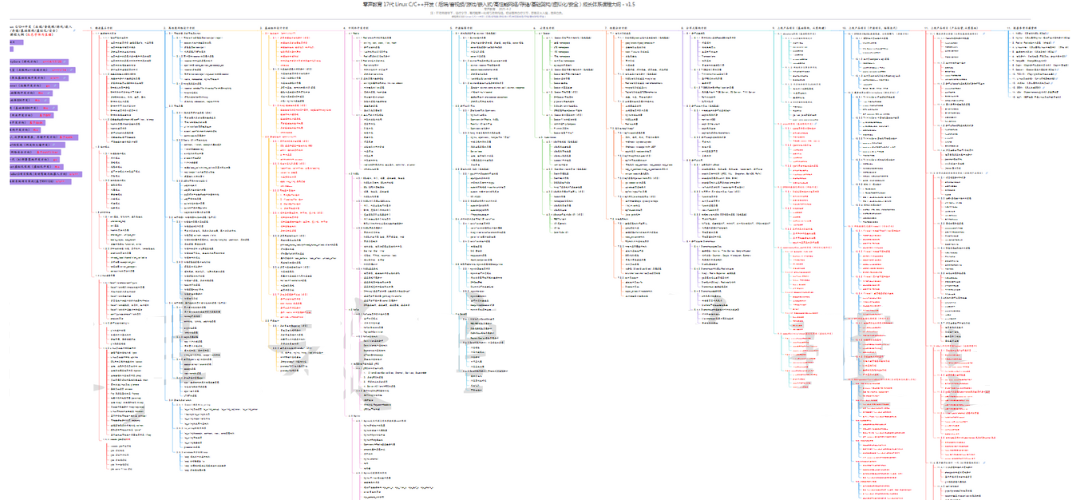Today, I would like to share a question from a fan: a first-year computer science student at a vocational college is interested in entering the embedded field. Is the entry barrier really higher than that of Java? Does experience in embedded systems become more valuable as one ages?
Next, I will share the specific questions from the fan and my responses, hoping to provide some inspiration and assistance to others in similar situations.
Student’s Question:
Hello, teacher. I am a first-year student majoring in computer science at a vocational college. I want to upgrade to a bachelor’s degree and then pursue a master’s degree, eventually entering the embedded field. I would like to ask the following questions:
1. Is the entry barrier very high compared to Java?
2. I have heard that entering the embedded field requires purchasing many boards. If I continue to learn until I meet the requirements of companies, will the costs of hardware learning be high?
3. Is it true that experience in embedded systems becomes more valuable as one ages, and that the technology evolves slowly? Even if there are updates, is it easy to learn new content based on past experience?
4. After the age of 35, is it difficult to switch jobs like in Java? If embedded systems are complex, difficult, and tiring, and if they can be easily replaced by newcomers like Java, does that mean there is no cost-effectiveness in switching to embedded systems?
5. Finally, if I upgrade to a bachelor’s degree and pursue a master’s degree to enter the embedded field, should I still choose computer science, or should I opt for electronic information, automation, or electrical engineering?
Yt’s Response:
Currently, you are in your first year and want to upgrade to a bachelor’s degree and then pursue a master’s degree. To be honest, you don’t need to think too complicated. Focus on upgrading to a bachelor’s degree first; figuring out how to get into a good undergraduate program is your most urgent task. If you think too much about things that are not related to your current situation, it’s like considering the Russia-Ukraine situation—what does it have to do with us? How does it improve our happiness index? I believe that the question you are pondering, such as whether the entry barrier is high compared to Java, is not something you need to worry about right now. Just focus on upgrading to a bachelor’s degree and ensuring you can get into a good program, whether it’s a 3+2 model or another good undergraduate program. After completing your undergraduate studies, you can consider pursuing a master’s degree, and that’s when you can think about employment. I believe that if you successfully upgrade to a bachelor’s degree, pursue a master’s degree, and succeed in your studies, your path will become easier as your knowledge base expands. As a first-year computer science student at a vocational college, the answers to your subsequent questions will vary depending on whether you have a diploma, a bachelor’s degree, or a master’s degree when you enter the job market.
Comparing Java and embedded systems, both have high entry barriers. How do they compare? I believe this comparison is irrelevant to you. It’s like discussing how much money Jack Ma and Pony Ma bet while playing cards—it’s a bit far from you. Therefore, I think there’s no need to consider such questions. Secondly, regarding the need to buy many boards to meet enterprise-level requirements in embedded systems, you don’t need to worry about this. I believe that after you complete your studies, whether you graduate with a bachelor’s degree or from a vocational college, if you work in embedded systems, you might only work with MCUs or PLCs in manufacturing environments. However, if you graduate with a master’s degree, you are likely to avoid these roles and instead choose to work with Linux. Linux is a very standard operating system, and at that point, you will find that hardware costs are not a concern because you may not be able to afford the boards anyway. A single mainboard might cost one to two thousand yuan, unlike the STM32 or MCU boards that can be obtained for a few hundred yuan. However, boards for Linux systems tend to be more expensive. You will find that later on, you won’t need to worry about buying boards; you can develop directly on general-purpose Linux systems, which is quite similar.
Regarding your third question, is it true that experience in embedded systems becomes more valuable as one ages, and that the technology evolves slowly? No, that is not the case. Please remember that the idea of becoming more valuable with age applies only in specific contexts. For example, if you have been working in a specific industry, such as network security, and your first, second, and third companies are all in that field, you will gradually become a technical expert. However, if you work in embedded systems and your first company is one type, your second company is another, your third company is a smart trash can, and your fourth is a smart door lock, you will find that each company is different, and you won’t become more valuable with age. The key to becoming more valuable is to have industry or product experience in addition to coding skills. If you understand the industry standards well, then you will become more valuable as you age, but it’s not necessarily true that embedded systems become more valuable with age.
For your fourth question, is it difficult to switch jobs after the age of 35, similar to Java? If embedded systems are complex, difficult, and tiring, and if they can be easily replaced by newcomers like Java, does that mean embedded systems have no cost-effectiveness? I believe, my friend, that you don’t need to worry about this question; it has no significance for you. The previous question was somewhat answerable, but what does this question mean for you? Right now, focus on upgrading to a bachelor’s degree and pursuing a master’s degree. Your answers will differ because you will be different. If you are looking for a job with just a vocational diploma, the work you do is inherently easy to replace. For example, if you work with STM32 or similar microcontrollers, consider that your salary will be hard to increase, and newcomers can easily replace you because it’s a standardized role.
For your fifth question, if I upgrade to a bachelor’s degree and pursue a master’s degree to enter the embedded field, should I still choose computer science? Let me clarify that the choice of major is not very significant. Many friends say that computer science students study 408, while automation students study digital and analog electronics, which seems like a big difference. However, please note that when you look for jobs later, all of these are considered computer-related majors. Whether it’s electronics, automation, or electrical engineering, they are all computer-related majors, and you can apply for jobs in the same way as computer science graduates. When it comes to campus recruitment, you can apply for the same positions that computer science graduates can apply for, as long as your technical skills are strong. So, regarding your entry into the field, as long as your major is in engineering, the differences are not significant.
Summary:
-
Current Core Task: Upgrade to a Bachelor’s Degree and Then Pursue a Master’s Degree; Don’t Worry About Distant Matters
As a first-year student who hasn’t even upgraded to a bachelor’s degree yet, comparing embedded systems to Java is like discussing the outcomes of a card game between Jack Ma and Pony Ma—it has nothing to do with you. The most important thing is to study hard and succeed in your studies; once you get into a master’s program, the employment answers will naturally differ.
-
Don’t Worry About Hardware Costs; Upgrading Your Degree Will Naturally Save You Money
Graduating from a vocational college may limit you to working with STM32 (where a development board costs a few hundred yuan), but after completing your master’s degree, you can work on Linux development. The boards may be expensive, but companies will provide them. Open-source tools and low-cost development boards (like Raspberry Pi) are sufficient for entry-level work, and for enterprise-level work, companies will reimburse you.
-
Experience Does Not Necessarily Increase Value with Age; Focus on Deepening Your Expertise in a Specific Field
The value of embedded systems expertise depends on staying within the same industry. For example, if you have been working in automotive electronics for ten years, you will become an expert; however, if you switch from smart door locks to smart trash cans every year, your experience will be wasted.
-
The 35-Year Crisis Depends on Educational Level; Don’t Compare Vocational Diplomas with Master’s Degrees
Those with vocational diplomas working with microcontrollers may be replaced by newcomers at 35 (considering soldering jobs), but those with master’s degrees working on Linux kernels or autonomous driving algorithms will be in high demand as they age.
-
Choose Any Engineering Major; It’s All Good
Choosing computer science, electronics, or automation for your bachelor’s degree makes little difference; all are considered “related majors” for campus recruitment, and companies value actual skills more.
Appendix: Latest Learning Paths for Advanced Linux C/C++ Full-Stack Development (For a clear version, please obtain below):

Computer-related majors: Employment/Job Seeking/Learning Paths/Offer Selection/Career Planning Advice/Learning Resources
Add WeChat: yt558998 Note【Public Account】
